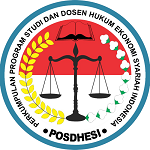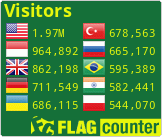.::. CITEDNESS IN SCOPUS .::.
Retraction
We understand that the authors have worked carefully preparing manuscripts, and we have carried out peer-review processes. However, sometimes, there is the potential for published articles to be withdrawn or deleted for scientific reasons. It should not be done lightly and can only occur under extraordinary circumstances. Therefore, corrections, clarifications, retractions, and apologies, when needed, will be carried out with strict standards to maintain confidence in the authority of its electronic archives. Our commitment and policy are to maintain the integrity and completeness of critical scientific records for researchers and librarians' archives.
Article Retraction
Mu’amalah: Jurnal Hukum Ekonomi Syariah is committed to playing its part in maintaining the integrity of the scholarly record; therefore, on occasion, it is necessary to retract articles. Articles may be retracted if:
- There is a significant scientific error that would invalidate the article's conclusions, for example, where there is clear evidence that findings are unreliable, either as a result of misconduct (e.g., data fabrication) or honest error (e.g., miscalculation or experimental error).
- The findings have previously been published elsewhere without proper cross-referencing, permission, or justification (i.e., cases of redundant publication).
- There are ethical issues such as plagiarism (appropriation of another person's ideas, processes, results, or words without giving appropriate credit, including those obtained through confidential review of others' manuscripts) or inappropriate authorship.
To ensure that retractions are handled according to publication best practices and following COPE retraction guidelines, Mu’amalah: Jurnal Hukum Ekonomi Syariah adopts the following retraction process:
- An article requiring potential retraction is brought to the journal editor's attention.
- The journal editor should follow the step-by-step guidelines according to the COPE flowcharts (including evaluating a response from the author of the article in question).
- Before any action is taken, the editor's findings should be sent to the Ethics Advisory Board. This step ensures a consistent approach in accordance with industry best practices.
- The final decision as to whether to retract is then communicated to the author and, if necessary, any other relevant bodies, such as the author's institution, on occasion.
- The retraction statement is then posted online and published in the next available issue of the journal (see below for more details on this step).
Note that if authors retain the copyright for an article, this does not mean they automatically have the right to retract it after publication. The integrity of the published scientific record is of paramount importance, and COPE’s Retraction Guidelines still apply in such cases.







